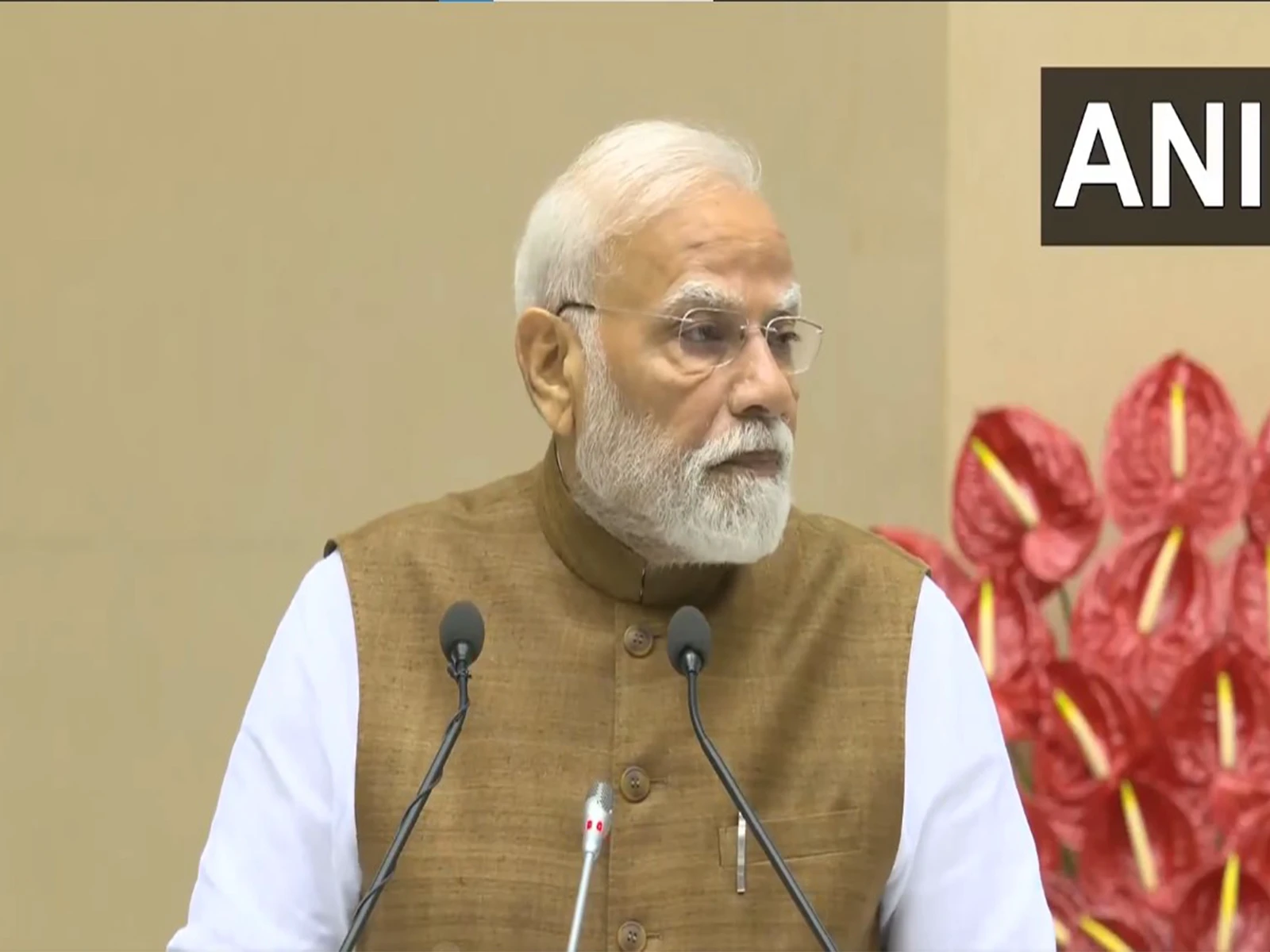Prime Minister Narendra Modi on Friday emphasised the importance of Indian manuscripts, and called them an “unparalleled civilisational treasure”, a source of pride for the nation.
Prime Minister Narendra Modi was speaking at the Gyan Bharatam International Conference, a three-day event concluding on September 13, with the theme ‘Reclaiming India’s Knowledge Legacy through Manuscript Heritage’.
PM Modi said that every country treasures its historical artefacts as a symbol of civilisation.”From mathematics to computer science, the foundation of modern knowledge rests on contributions like the concept of zero discovered in India. Every country treasures its historical artefacts as symbols of civilisation. India, with its vast manuscript collection, holds an unparalleled civilisational treasure, a source of pride for the nation,” PM Modi said while speaking at the second day of the event.
PM Modi added that the ancient manuscripts reflect the uninterrupted flow of India’s intellectual and cultural legacy. He stated that the manuscripts describe India’s “unity in diversity” with the presence in more than 80 languages.”Ancient manuscripts reflect this uninterrupted flow of India’s intellectual and cultural legacy. These manuscripts are letters declaring our unity in diversity. They exist in nearly 80 languages, encompassing an infinite ocean of knowledge in Sanskrit, Prakrit, Assamese, Bengali, Kannada, Kashmiri, Konkani, Maithili, Malayalam, Marathi,” he said.
The Prime Minister noted that manuscripts have the footprint of the progress path of entire mankind and reflect humanity’s journey, encompassing philosophy, science, medicine, metaphysics, art, astronomy, and architecture.”The Gilgit Manuscript, for instance, provides an authentic history of Kashmir. All these manuscripts have the footprint of the progress path of the entire mankind. Indian manuscripts reflect humanity’s journey, encompassing philosophy, science, medicine, metaphysics, art, astronomy, and architecture,” PM Modi said.
“India is going to present its pride before of the world. Hundreds of old statues stolen from India are being returned –India has awakened such a belief in the world,” he added.The Prime Minister revealed the government’s plans to collaborate with universities in Thailand and Vietnam for training scholars to decipher manuscripts in Pali, Lanna, and Cham languages. He underscored that the Gyan Bharatam Mission will boost such efforts.
“Under the Gyan Bharatam Mission, India aims to preserve this heritage globally, engaging countries with centuries-old cultural ties. We have collaborated with universities in Thailand and Vietnam, training scholars to decipher manuscripts in Pali, Lanna, and Cham languages. The Bharatam Mission will expand such efforts further,” the Prime Minister said.PM Modi said that digitising the manuscripts will curb intellectual piracy and ensure that the world has access to their authentic sources. He said that the global cultural and creative industries are worth USD 2.5 trillion. He added that digitised manuscripts can feed this sector and serve as a vast data bank.
“Some traditional knowledge has been copied and patented abroad. Digitising manuscripts will curb intellectual piracy and ensure the world accesses authentic sources. The Gyan Bharatam Mission is also uncovering new research and innovation. Today, the global cultural and creative industries are worth $2.5 trillion. Digitised manuscripts can feed this sector, serving as a vast data bank. They will inspire data-driven innovation, providing new opportunities for young researchers. New technologies like AI will play a key role,” he said.PM Modi further urged the youth to come forward and join the Gyan Bharatam Mission. He noted that their involvement in the mission will accelerate the process of exploring the past through technology and making this knowledge accessible to humanity, grounded in evidence.
“I call on the youth of India to join this mission. Already, 70 per cent of participants are young people–a strong sign of success. Their involvement will accelerate the process of exploring the past through technology and making this knowledge accessible to humanity, grounded in evidence. Universities and institutes must also take initiatives in this direction,” he said.Ministry of Culture describes ‘Gyan Bharatam’ as a national movement dedicated to safeguarding and disseminating India’s vast manuscript wealth. It will serve both as a tribute to the nation’s civilisational roots and as a forward-looking step towards the Prime Minister’s vision of a Viksit Bharat by 2047, where India emerges as a true Vishwa Guru, combining the wisdom of its past with the innovation of its future.
Designed as a comprehensive framework, Gyan Bharatam’s objectives include identification and documentation of texts through a nationwide register, the conservation and restoration of fragile texts, large-scale digitisation using AI-driven tools, and the creation of a National Digital Repository.
It will also focus on research, translation, and publication of rare manuscripts, capacity building for scholars and conservators, development of digital platforms, and public participation through collaborative programmes. Further, global partnerships and the integration of manuscript wisdom into education will strengthen India’s role in global knowledge exchange.
